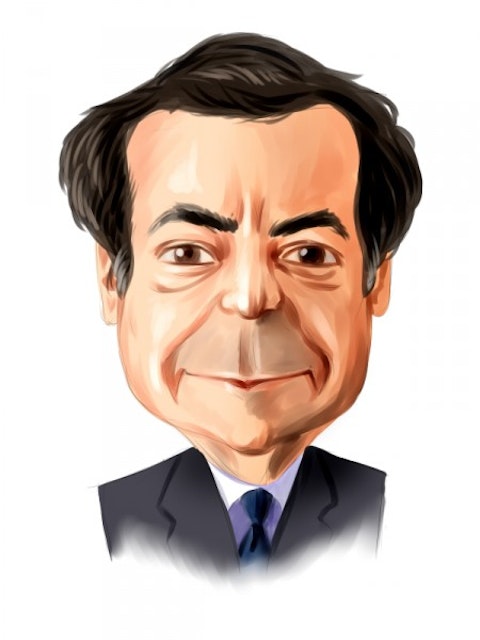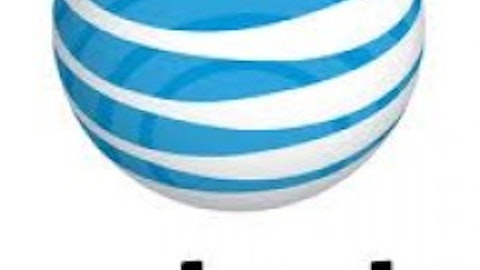John Paulson, the billionaire hedge fund manager, is known for maintaining an impressive strength during the sub-prime crisis of 2008. His firm, Paulson & Co, has a market value of $17.72 billion as of March 2013. However, after the sub-prime crisis, the performance of the fund is not very impressive. Its Advantage Fund has generated an average annual return of just 4.1% in the last 5 years. Here is an analysis of Paulson’s top two holdings to see if investors should look to Paulson’s portfolio to strengthen their own. According to the 13F filing with SEC, Paulson’s top two holdings were Sprint Nextel Corporation (NYSE:S) and Life Technologies Corp. (NASDAQ:LIFE)
| Company | Percentage of Top Holding |
|---|---|
| Sprint Nextel | 8.1% |
| Life Technologies | 5.39% |
Will the innovation and expansion strategies adopted by these companies accelerate their growth?
Strong future growth opportunities
Sprint Nextel Corporation (NYSE:S) increased its capital expenditure to approximately $1.8 billion in the first quarter of this year, up from $800 million in the first quarter of previous year. The company has earmarked $1.4 billion in capital for its Network Vision program, which aims to enhance Sprint’s technology to provide a seamless network. This will increase efficiency and network coverage by improving call quality and data transfer speeds.
Furthermore, Sprint Nextel Corporation (NYSE:S) recently launched 4G LTE in 88 cities, and plans to expand that service in an additional 170 cities in the coming months, which will allow the company to offer smartphone users unlimited access to the LTE network. Based on these moves, Sprint estimates it will generate OBIDA of more than $5.2 billion in the current year, up from $4.8 billion in the previous year.
Recently, after a bid hike from SoftBank, DISH Network Corp. (NASDAQ:DISH) dropped its plan to acquire Sprint Nextel Corporation (NYSE:S). FCC approval is the final hurdle to finish this deal. SoftBank increased its bid to $21.6 billion for 78% of the stake in Sprint Nextel Corporation (NYSE:S). Sprint entered into this deal to expand its high-speed 4G LTE service network in a new market.
SoftBank and Sprint together sold 26.5 million phones in the previous year, which is close to its competitors’ numbers: Verizon Communications Inc. (NYSE:VZ)’ 28.8 million and AT&T Inc. (NYSE:T)’s 26.9 million. With its newly-acquired capacity, Sprint can look for bargains from phone, which will help the company offer aggressive handset and service contract pricing. Of course, this means higher returns; however, this deal isn’t much of an investment opportunity because Softbank has agreed to acquire it at a price of $7.65 per share, and Sprint is currently trading below that at around $7 per share.
On the path of expansion
Life Technologies of California (LTC) and SuzhouRiboLife Sciences (Ribo) entered into a deal on June 19 to develop and manufacture siRNA molecules, with the help of Life’s Invivofectamine Rx delivery technology, for treatment of patients suffering from hepatitis “B.” LTC will receive royalties for every unit of drug produced by Ribo. As one-third of the people suffering worldwide from hepatitis B reside in China, this is a timely solution to a widespread medical need, and as such, it looks as though the deal will prove successful for both parties.
Further, LTC recently acquired Life Science Korea, a major distributor of biotechnology products in South Korea. This acquisition will help the company approach its Korean customers directly, which will increase its footprint in that market. Emerging markets contributed 10% to LTC’s total sales in 2012. With these expansions, revenue from emerging markets is expected to increase at 30% CAGR and will rise to $1.6 billion in 2015.
However, LTC itself is about to be acquired by Thermo Fisher Scientific Inc. (NYSE:TMO) for $13.6 billion. The deal includes LTC’s debt of approximately $9.5 billion and $4 billion of equity. This acquisition will create a powerhouse in bio-pharma lab instrumentation and supplies.
With this acquisition, Thermo Fisher Scientific Inc. (NYSE:TMO) will generate operating income synergies of $85 million in the first year. The companies will generate combined annual revenue of $16.3 billion, whereas Life Technologies Corp. (NASDAQ:LIFE) individually was estimated to generate total revenue of just $4 billion in 2014.
This acquisition is expected to get approval from concerned regulatory bodies, either at the end of 2013 or in early 2014, with a target share price of $76. Life Technologies Corp. (NASDAQ:LIFE) is currently trading at around $74, however, so there isn’t an entry point for the investors in that company’s stock before the expected acquisition.
Thermo Fisher’s total synergy within next three years
| Type of Synergy | Amount |
|---|---|
| Operating income synergies | $275 million |
| Cost synergy | $250 million |
| Revenue synergies | $25 million |
Bottom line
With the increased capital expenditure, Sprint will observe a rise in its market share. Further, acquisition of Sprint by SoftBank will provide handsets and services at an aggressive price. However, the market has already included these expectations and is trading near SoftBank’s offer price.
On the other hand, Life Technologies Corp. (NASDAQ:LIFE) – and its soon-to-be-acquirer, Thermo Fisher, will receive royalties from its deal with Ribo. This will create revenue generating opportunities for Thermo Fisher, but doesn’t provide an entry point for investors in Life Technologies Corp. (NASDAQ:LIFE).
Thermo is a “buy,” but Sprint and Life Technologies are a “hold.”
Madhu Dube has no position in any stocks mentioned. The Motley Fool recommends Thermo Fisher Scientific.
The article What Can a Top Hedge Fund’s Top 2 Holdings Do For You? originally appeared on Fool.com and is written by Madhu Dube.
Madhu is a member of The Motley Fool Blog Network — entries represent the personal opinion of the blogger and are not formally edited.
Copyright © 1995 – 2013 The Motley Fool, LLC. All rights reserved. The Motley Fool has a disclosure policy.




